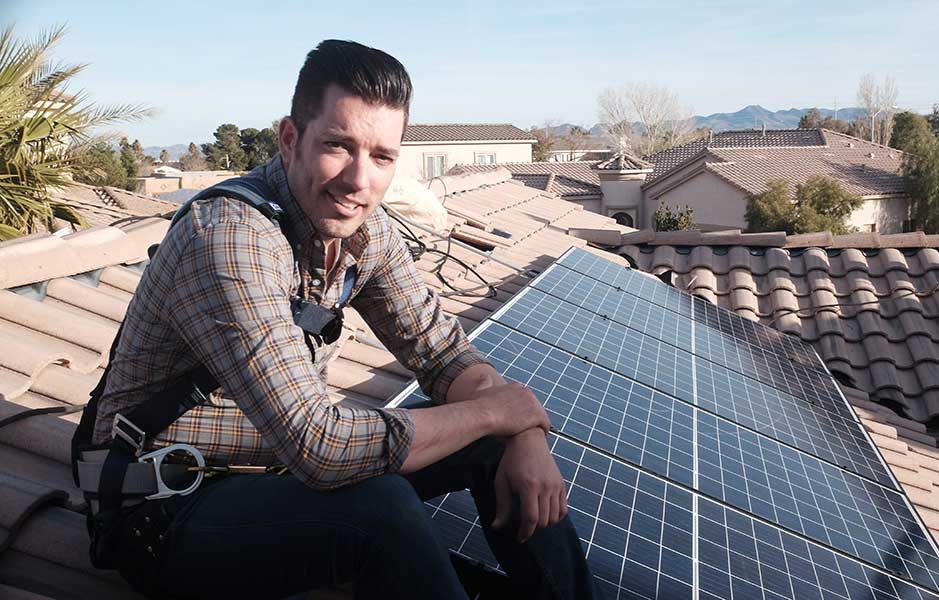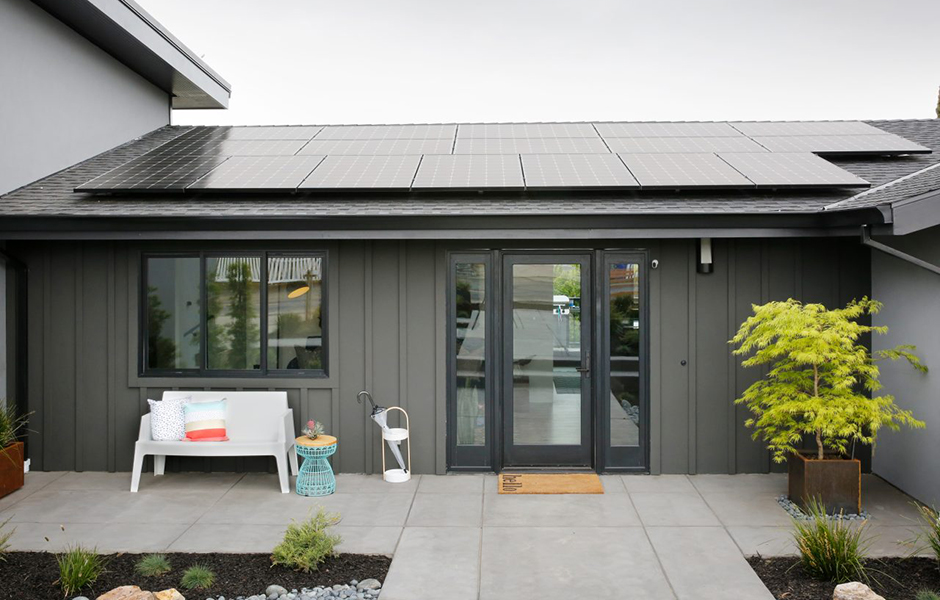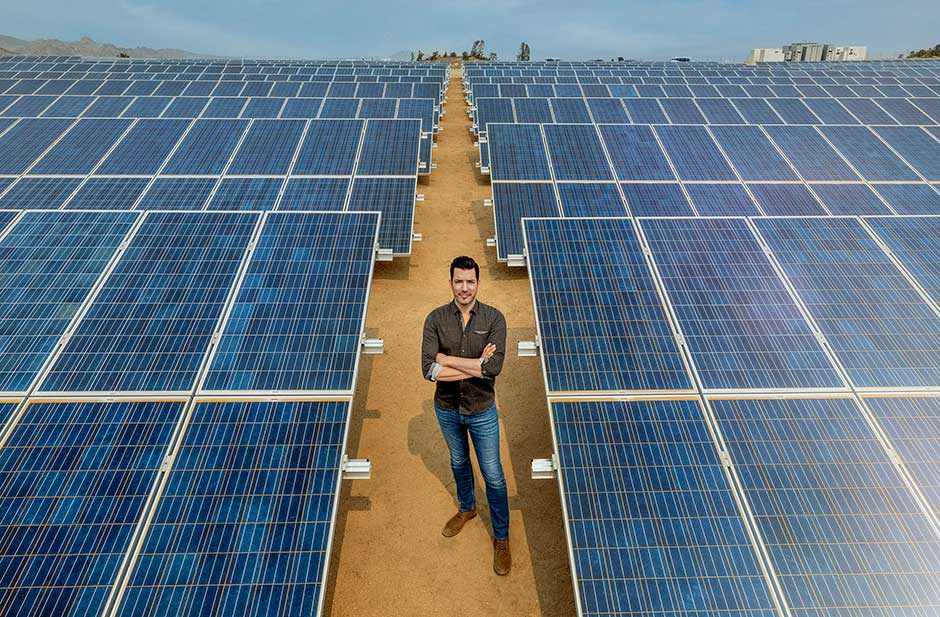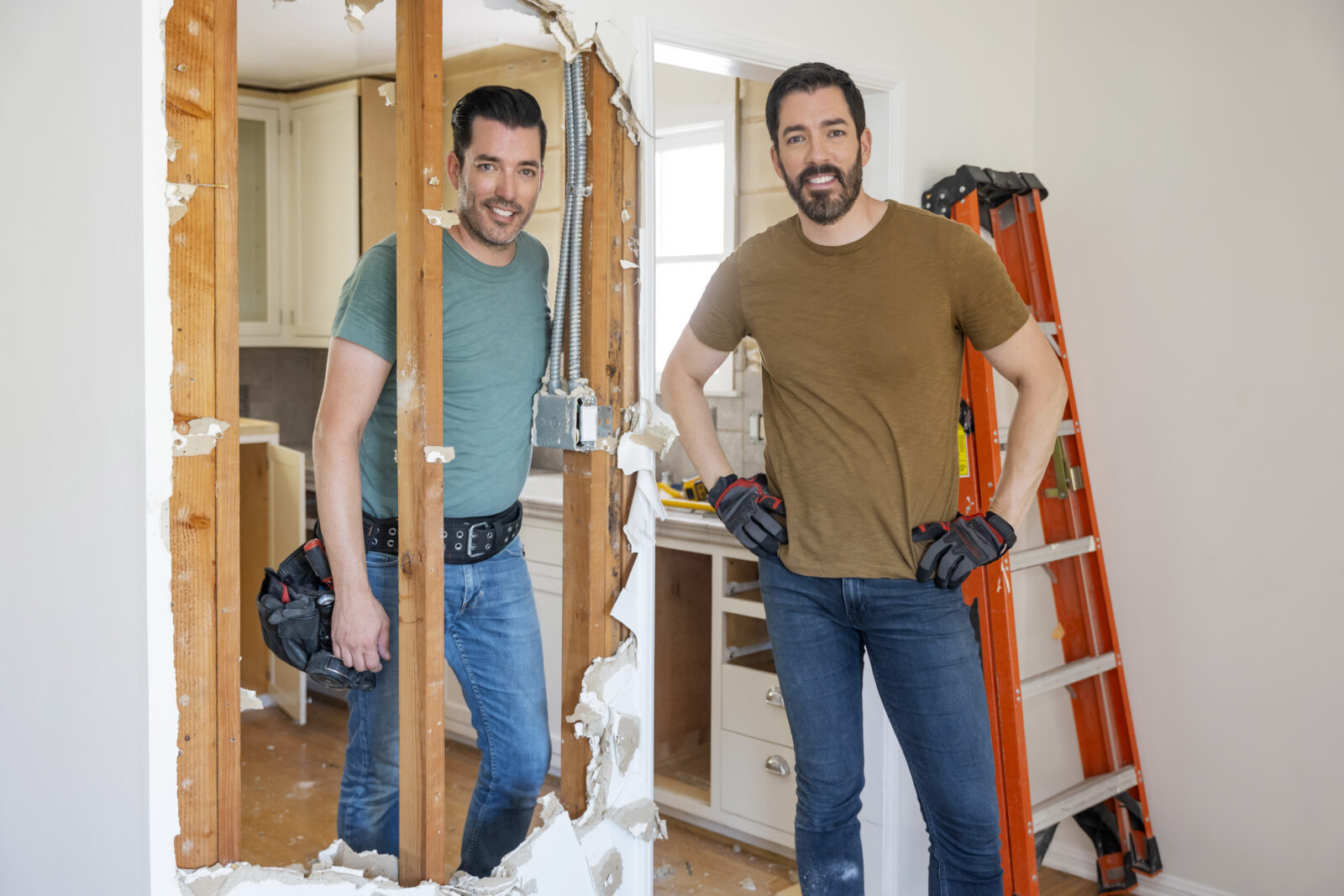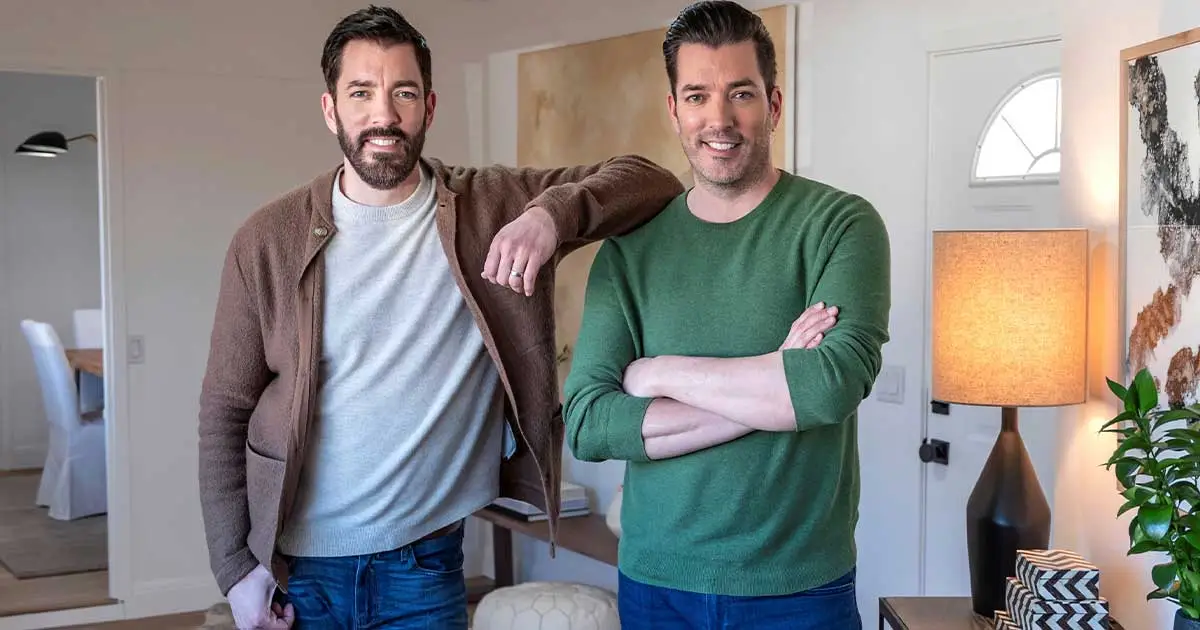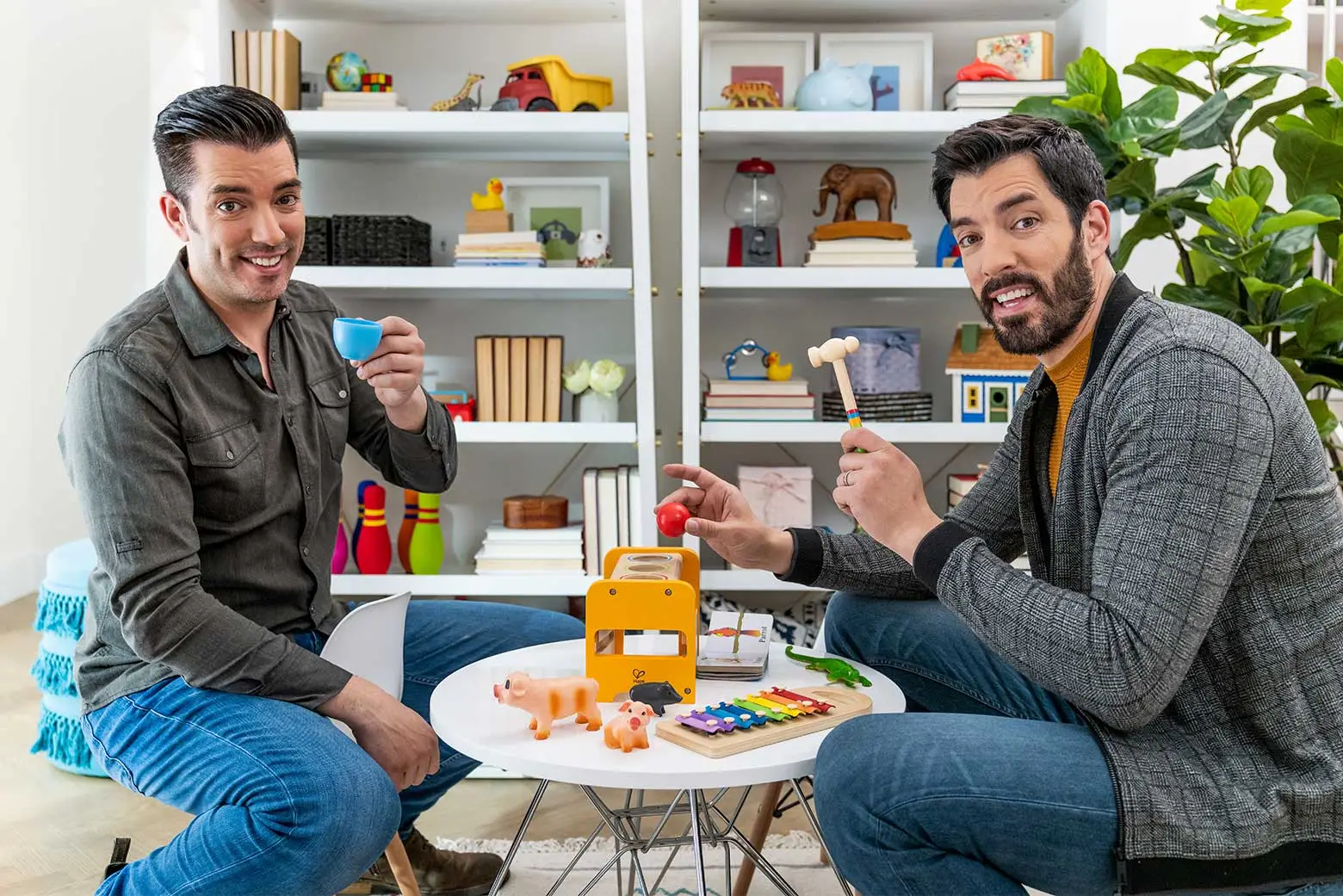What to Know About Solar Power: Info, Resources, and More

This site contains affiliate links to products. We may receive commission for purchases made through these links. Price at time of publish date may change.
Happy Earth Month! In honor of the place we all call home, we’re showing how easy and important it is to harness the power of our most incredible energy source: the sun. Solar is an infinitely renewable, clean energy source that can reduce greenhouse gas emissions and other toxic pollutants. That’s no small feat! And in today’s day and age, any energy source that can reduce our carbon footprint is one worth exploring.
That’s why we put together a resource guide for all things solar, including how we use solar energy in our own homes and even on some renovations we’ve done on our shows. Check out these resources we’ve gathered to learn more about the importance of harnessing the sun’s energy and how to get started.
So, How Does Solar Power Work?
Solar energy is created by converting the energy of the sun into power, which can then be turned into electricity and heat. There are two different types of solar panels: PV and thermal. PV panels generate electricity, while thermal panels generate heat. The panels are usually made of silicon or some similar semiconductor material that’s installed into a metal frame and cased in glass. When the panel is exposed to photons from sunlight, the material releases electrons and produces an electric charge. That charge creates an electric current, which can then be converted into electricity or heat.
Are Solar Panels Bad for the Environment?
Because solar panels last for over 25 years, their carbon footprint is actually pretty small—especially in comparison to fossil fuels like natural gas, coal, and oil. This doesn’t mean that solar causes no waste whatsoever, but the myth that solar panels are “bad for the environment” is just that: a myth! According to a National Renewable Energy Laboratory review, the total lifecycle emissions from solar energy sources are considerably lower than the emissions from their natural gas and coal counterparts.
Of course, solar panels do have a life cycle, and you need to recycle and replace them when the time comes. So when their 25–30 years are up and it’s time to swap your panels out for new ones, you must be sure to recycle them in accordance to your state’s solar panel end-of-life policies.
And Is It Expensive?
This will depend on a ton of factors, like how much electricity you normally use, the size of the system you’re planning to install, if you choose to buy or lease your solar panels, and your environmental factors (for example, is there an overgrown tree that blocks most of the sunlight from your roof?). Though installation will cost money upfront, you may end up saving in the end, as solar can actually help you cut down on energy costs. It’s also becoming more affordable with rebates and tax incentives, and you might also be eligible for solar renewable energy certificates (SREC), depending on the state you live in. Bonus: Solar can actually increase your home’s value.
Solar Power Research Guides and Fact Sheets
Residential Consumer Guide to Solar Power: The Solar Energy Industries Association developed this guide specifically for potential solar-switchers. It covers financing options that may be available, contracting terms to know, and a bunch of handy tips while you’re getting started on your solar journey.
A Homeowner’s Guide to Solar Financing: Leases, Loans and PPAs: A guide created by the Clean Energy States Alliance for homeowners. It highlights popular financing options (with helpful pros and cons) in comparison to a cash purchase.
A Homebuilder’s Guide to Going Solar: A guide made by the U.S. Department of Energy specifically for builders and architects. It goes over the economics of solar, finding an installer, selecting your site, how to build houses solar-ready, and more.
10 Things to Consider Before You Go Solar: A short but comprehensive list, created by the American Public Power Organization, of things to think on before you decide to make the switch to solar.
Own Your Power! A Consumer Guide to Solar Electricity for the Home: Created by the U.S. Department of Energy, this guide details the basics of solar and how it works, including how to choose the right solar energy option for you and financial incentives that may be available.
SEIA Residential Lease Disclosure Form: A form to help lessees better understand the ins and outs of their solar leases, including popular terminology.
Our Journey With Solar Power
Jonathan Scott’s Power Trip Documentary
We have been working for years on informing Americans about where their energy comes from. One result of that work: Jonathan Scott’s Power Trip. Jonathan’s documentary took him across the country and into the halls of Congress. It reveals how powerful utility companies are blocking everyday Americans’ access to cheaper, cleaner energy. You can stream Power Trip for free right now on Tubi, Peacock, or Amazon Prime. Check out more at powertriptruth.com.
Brother Vs. Brother Solar Showdowns
We’ve put solar panels on a bunch of our home renovations, including a couple of our awesome outdoor Brother Vs. Brother finales! Check out how we installed solar panels on our renovations in San Francisco and Los Angeles.
How Solar Power Will Change Our World
Ready to take the plunge for your own home? Check out what Jonathan and solar experts have to say in Drew + Jonathan Reveal magazine about to make it all worth it, and for far less than you might think.
